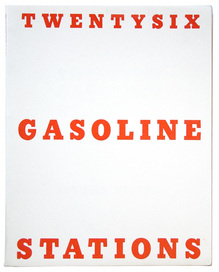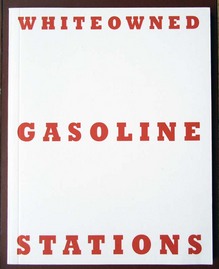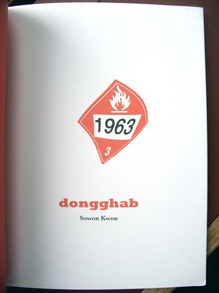(left) Edward Ruscha, Twentysix Gasoline Stations. 3d ed. (Alhambra, Calif.: Cunningham Press, 1969).Graphic Arts Collection (GAX) 2006-2396N.
(right) Sowon Kwon, Dongghab ([Montpelier, VT]: Vermont College of Fine Arts, 2010. Graphic Arts Collection GAX 2013- in process
This publication is the first in the series talks produced by the faculty of the MFA in Visual Art Program at Vermont College of Fine Arts. “Pioneering a low-residency educational model, VCFA is committed to critical art practices and individualized learning. Each VCFA Talks volume is based on lectures presented at residencies and represents an individual work as well as a document of a collective pedagogical process.”
Ulrike Müller writes, “Dongghab traces an online search in which the
point of departure is the discovery that the publication of Edward Ruscha’s Twentysix Gasoline Stations and the suicide of Sylvia Plath by oven gas both occurred in 1963, the year of Kwon’s birth.
Cued by Ruscha’s seminal work, Kwon unveils an uncanny cosmology of events constellated by the convergence of “1963” with “gasoline” such as the assassination of Medgar Evers (after having lead a successful boycott of white-owned gasoline stations in Jackson, Mississippi) and the self-immolation of Thich Quang Duc in Saigon (in protest of the oppression of Buddhists by the Catholic administration of then president Ngo Dinh Diem), among others.
The Korean word dongghab describes a social relationship between people born in the same year, so that the idea of a (self) portrait as socially contingent and historically determined as much as individuated, informs the book.”
New York-based artist Sowon Kwon works in a range of media including sculptural and video installations, digital animation, drawing, and printmaking. Her recent work explores portraiture, perception, and historical memory as our bodies are increasingly submitted to and made accessible through technology.


